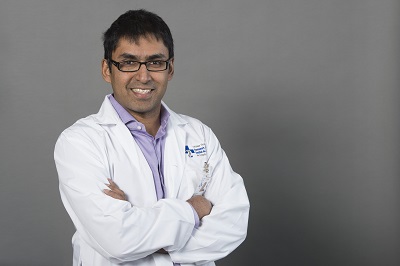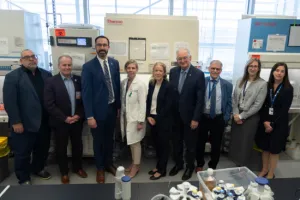Ottawa researchers working with World Health Organization to improve response to public health emergencies
 In response to the SARS outbreak, the threat of influenza pandemics, and the changing nature of public health emergencies, the World Health Organization released the revised International Health Regulations (IHR(2005)). These regulations are the most important document governing the international response to public health emergencies. Since their release, they have guided local response to public health threats and have been applied to a variety of global health threats - most notably pandemic influenza, Ebola, and Zika.
In response to the SARS outbreak, the threat of influenza pandemics, and the changing nature of public health emergencies, the World Health Organization released the revised International Health Regulations (IHR(2005)). These regulations are the most important document governing the international response to public health emergencies. Since their release, they have guided local response to public health threats and have been applied to a variety of global health threats - most notably pandemic influenza, Ebola, and Zika.
National IHR Focal Points (NFPs) play a critical role in implementing the IHR, communicating with the World Health Organization, and assessing potentially reportable events. However, a review by the World Health Organization has indicated that many NFPs lack the authority, capacity, training, and resources to effectively carry out their mandate when it comes to their functions under the IHR. This can limit NFPs' ability to communicate information about public health events in a timely and effective manner and could compromise the prevention and management of global health threats.
In order to address this issue, the WHO has commissioned researchers at The Ottawa Hospital to carry out an evaluation of NFPs' experiences when it comes to implementing the IHR. In collaboration with researchers at Georgetown University's Center for Global Health Science and Security and the O'Neill Institute for National and Global Health Law, Dr. Kumanan Wilson (pictured above) and Lindsay Wilson at the Ottawa Hospital Research Institute and the University of Ottawa will interview and survey National Focal Points. The results of these study components will help to inform and strengthen WHO efforts to support NFPs in their implementation of the IHR(2005) and their ongoing efforts to protect the world from global health threats. The results will also support a series of joint research projects undertaken by the Ottawa Hospital Research Institute and Georgetown University's Center for Global Health Science and Security and O'Neill Institute for National and Global Health Law.
Learn more about:
The Ottawa Hospital is a leading academic health, research and learning hospital proudly affiliated with the University of Ottawa and supported by The Ottawa Hospital Foundation.


